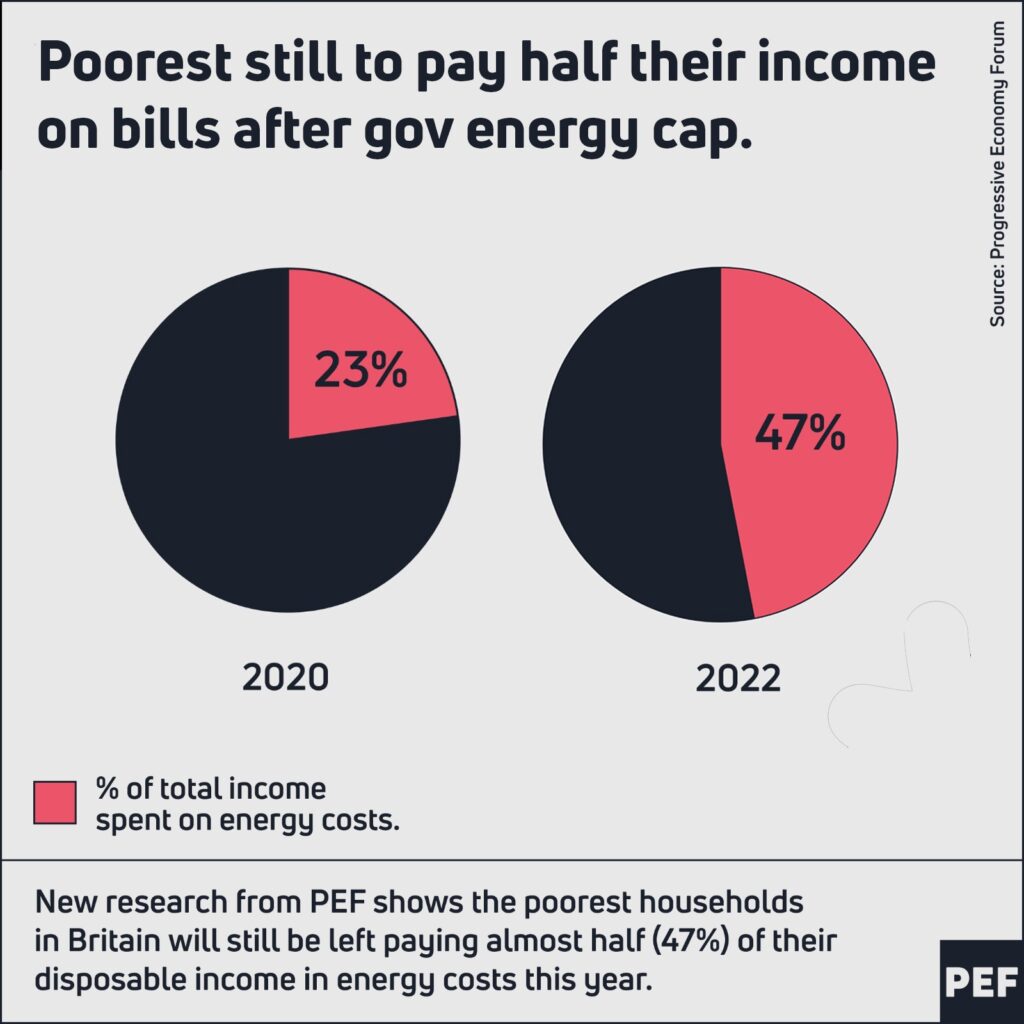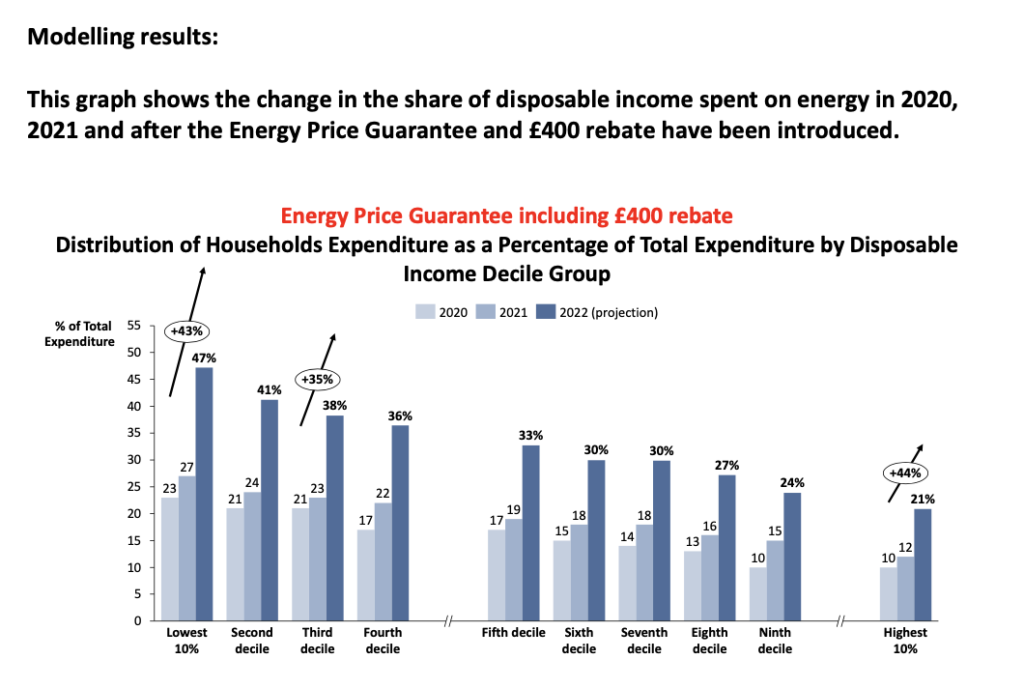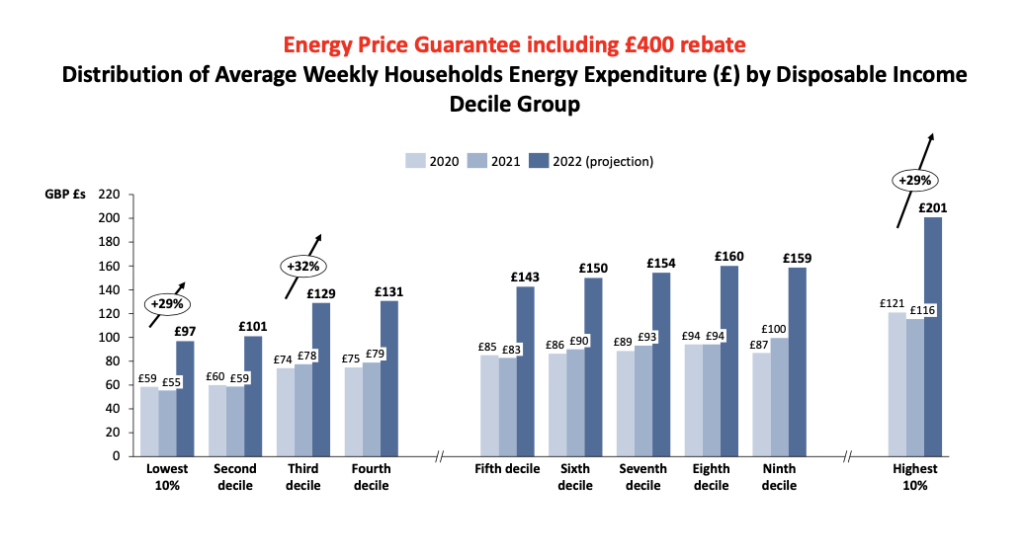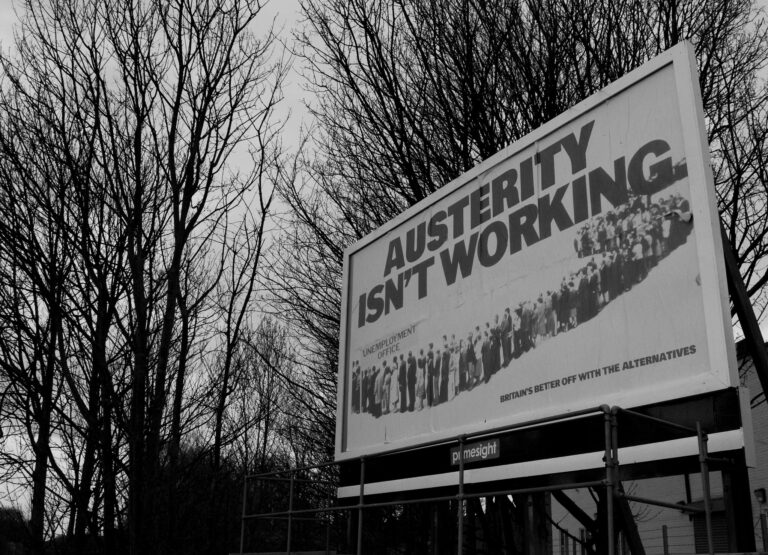New figures from the Progressive Economy Forum show that poorest households will still be paying half their income in energy bills under government price guarantee.
Shocking new figures, released today by the Progressive Economy Forum, show that the poorest households in Britain will still be left paying almost half (47%) their disposable income in energy costs this year despite the government’s £150bn Energy Price Guarantee.

A household on average income is forecast to spend a third of their disposable income on energy bills, almost double the 17% they paid in 2020. Meanwhile households in the top 10% of earners will be paying only one-fifth of their disposable income towards energy costs.
Forecasts produced using UK government consumption statistics reveal the impact of energy price hikes over the last year. A further 280,000 households are set to be pushed into fuel poverty, taking the UK total to almost 6.98m households unable to afford to heat their homes adequately. This is a quarter of all UK households (28.1m).
Commenting on the findings, economist Dr Gissell Huacha said:
“Whilst the cost-of-living crisis will impact all income groups, it is clear from the data that the poorer side of the population will be most significantly affected. Households in the lowest income decile are expected to spend up to 47% of their disposable income to maintain their previous energy consumption levels (2021).
Such substantial shifts in household expenditure are expected to have two worrying outcomes. First, deprivation is expected to deepen in low-income communities, which will fuel the overall level of inequality across the country. Second, the economic recovery is expected to slowdown as businesses are likely to experience significant drops in demand mainly because households are expected to reallocate their budgets to prepare for the cold winter ahead.”
Director of the Progressive Economy Forum, James Meadway, said:
“These figures show the urgent need for additional support for household incomes over the next six months. With domestic energy bills still set to rise on average 64% from their 2020 levels, despite government support, and food prices still rising rapidly, households in Britain face a grim few months.
“The government must urgently bring forward plans for an overhaul of the energy tariff system, guaranteeing free basic energy needs for households and bringing energy suppliers into public ownership as needed.”
NOTES:
- The modelling work was completed by Dr Gisell Huaccha of the University of Leeds. Projections are modelled as weighted averages of historical data from the Office of Gas and Electricity Markets (Ofgem, August 2022) and the Office of National Statistics (ONS, July 2022). The distributional model accounts for the propensity to consume of each decile group and the impact that an increase in the energy price would have on each of the aforementioned groups. The projected figure for 2022 is the weekly average spend for the whole year and is therefore likely to be an underestimate for the winter months.
- Model outputs are on the following sheets, below:








